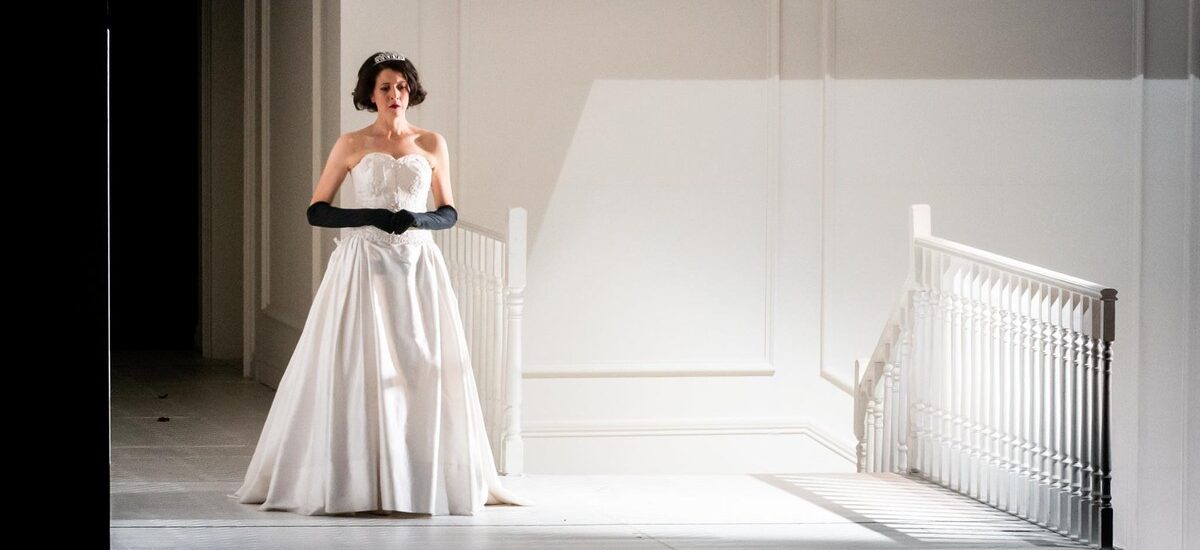TRANSCRIPT
Scofield: This CD is called Ombra Compagna, which I think is rendered as “companion spirit” in the CD’s lyrics, but which you have translated as “the shadow that accompanies”. This really got some spectacular pieces in it, one of the ones that I think is a favourite, and that you said has the most gorgeous music of the entire album, It’s called “Ah, lo previdi”. That is quite a special one, isn’t it?
Oropesa: Yes, I think that aria is the emotional center of the album. It’s where Ombra Compagna as a phrase, as an idea comes from. It has several sections, and it’s unlike all the other arias, in that it has a recitative, an aria that’s fast, and then another recitative, and then an aria that is slow, which almost never happens. You almost always have a slow aria first, and then a fast aria, like an aria cabaletta, kind of like how you have in bel canto. But this is the opposite. You’re seeing the fast part first, and you go on and on and on, and then you come and sing the slow sustained section, which if you are in any way familiar with Mozart’s music, whenever he says slow and sustained, it means difficult. It’s so hard and challenging, because the voice is very exposed! But because of what’s happening in the story of what the situation is, it’s heartbreakingly beautiful, and has a sad yet hopeful kind of message to it, and that’s why we picked that title.
Scofield: This is one that Mozart composed for a woman that he loved, the singer Aloysia Weber, based on a Greek myth about the beautiful Andromeda, who was chained to the rock and then rescued by and fell in love with Perseus. A very famous Greek myth, there is even a fresco of Andromeda and Perseus in Pompeii. It’s not just a very intense love story, but it means something even more to you, Lisette, about concentrating in life on what’s important, doesn’t it?
Oropesa: Yes, I feel like the aria exposes a flaw of human nature, which is that we get caught up in our reactive emotions about things that happen to us, and in doing that we often miss something very important that is happening elsewhere in our lives. I mean, how often have you been so distracted or caught up in something awful that you’re experiencing, and just going on and on in your feelings about it, that you miss a phone call from a lover or your mom, or you miss someone’s birthday or something important? And that’s essentially what happens is that, on a much more dramatic level. She’s busy being angry about something, and she misses the moment in which her lover has died. And then she realizes that she wants to go after him as an Ombra Compagna, as an accompanying spirit into the afterlife. But the thing is that once someone has died, that’s it, isn’t it? That’s the end. If you miss someone’s death, God forbid, because you’re somewhere else being distracted by your own emotions or whatever, you’d be left with so much regret, because you can never see that person again. That’s it. That’s the end. It’s heartbreaking.
I have a story in my own personal life that I’ve never shared with anybody, that I would like to tell you. When I was a young singer, making my international debut, my father was diagnosed with lung cancer in the middle of the run. And this was my first international engagement. When we found out that he was very close to dying, it was very sudden, I mean he had very, very little time left, and I was overseas. And I thought if I don’t leave now and go see him. I will regret it for the rest of my life. I had to tell my company where I was singing, I was like, “I’m really really sorry, but I’m about to lose my father, and I must go home”. At first, they were disappointed, because, oh well, “can you just stay a few more days?”, or “can you just do this one thing?”, and I said I’m really sorry but I can’t. And I went home, I saw my dad and I spent a week with him, and then he passed. And if I hadn’t done that, if I hadn’t dropped everything to go and be with him, I would have missed that moment, and it would have been exactly what the aria is about. I would have been feeling the same thing, which is “I can’t believe I was too busy doing this over here, that I missed my last moment with you”. So that’s another reason why it’s very deeply personal for me.
Read more about Lisette Oropesa on their OFFICIAL WEBSITE.




